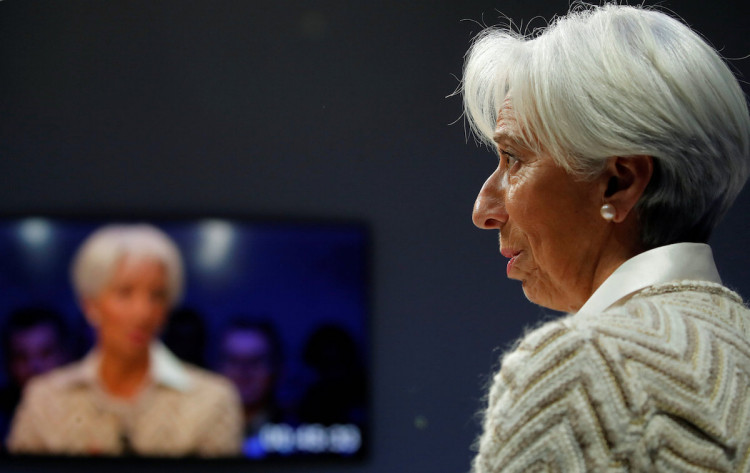The International Monetary Fund (IMF) warned on Sunday of a potential "economic storm" that will affect the global economy's growth. The news came after the organization revised its 2019 forecast late in January.
IMF Managing Director, Christine Lagarde said during the World Government Summit in Dubai, "The bottom-line - we see an economy that is growing more slowly than we had anticipated," The Economic Times reported.
The IMF previously lowered its expectations of the global economy this year on its report released January 21. From a 3.7 percent growth rate, the organization dropped its expectations to 3.5 percent.
In her speech, Lagarde cited "four clouds" as the key factors that have been affecting the global economy's growth rate. She added that a "storm" may come through, urging governments to prepare for tough scenarios this year.
"When there are too may cloud, it takes one lightning (bolt) to start the storm," Lagarde pointed out.
The "four clouds," according to Lagarde, are financial tightening in a couple of governments, tariff escalations brought about by trade tensions, the slowdown in the Chinese economy, and uncertainties about how the U.K. will fair following Brexit.
On the China-U.S. trade dispute, Lagarde noted that there is no predicting what could happen but she stressed that it has started affecting various markets and trade operations.
Meanwhile, business groups have warned that the British exit is headed towards an "emergency zone" in less than 50 days before the U.K. opts out of the European Union (EU). Their comments came after Prime Minister Theresa May rejected Labour leader Jeremy Corbyn's proposal.
According to The Guardian, Corbyn suggested that Great Britain should compromise in some form of a customs union to finally strike a deal. May stressed that Corbyn's recommendations will prevent the country from having fair control of its trade deals.
It is expected that a final deal will be delivered to the House of Commons by February 27. However, if no deal is produced by then, other MPs will have to intervene and seek out other ways to stop a no-deal Brexit from taking place.
The Confederation of British Industry's head, Carolyn Fairbairn, said the U.K. was "in the emergency zone of Brexit now," echoing sentiments from business leaders about slow progress that has affected the country's economy.
Fairbairn explained that the uncertainty that comes with Brexit will endanger the British market's reputation as a long-term business partner, adding that the issue will have a negative impact on investment and jobs across the country.





